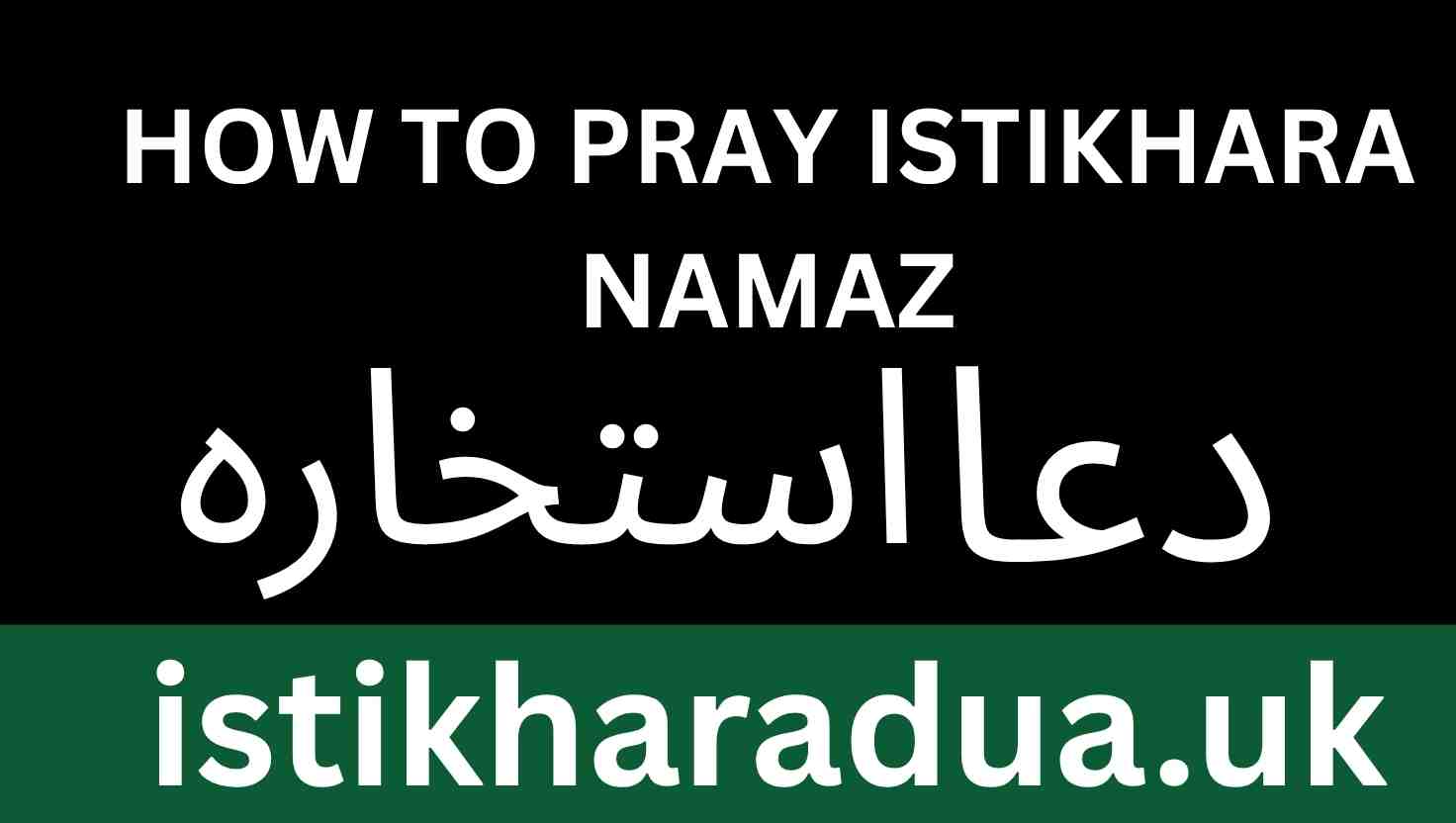How to Pray Istikhara Namaz
Unlocking the blessings of Istikhara can transform your decision-making process, bringing you peace and clarity through Allah’s guidance. This comprehensive guide will walk you through how to pray Istikhara Namaz step by step, with detailed instructions, authentic istikhara dua in Arabic (and translation), practical tips, and answers to frequently asked questions. Whether you seek divine support for marriage, career, travel, or any significant choice, this SEO and AEO-optimized blog provides everything you need.

Table of Contents
- What Is Istikhara? Meaning and Importance
- When Should You Pray Istikhara?
- Step-by-Step Guide: How to offer Istikhara Namaz
- The Complete Dua e Istikhara (Arabic, Transliteration & English)
- What to Do After Praying Istikhara?
- Common Myths & Misconceptions
- Practical Tips for Istikhara
- Frequently Asked Questions (FAQ)
- Conclusion
1. What Is Istikhara? Meaning and Importance
Istikhara (الاستخارة) literally means “seeking goodness” or “seeking the best” from Allah. It is a special prayer to ask Allah (God) to guide you toward the best outcome when faced with an important decision or confusion. The act of doing istikhara demonstrates trust in Allah’s knowledge, wisdom, and mercy.
“If any one of you is concerned about a decision he has to make, then let him pray two rak’ahs of non-obligatory prayer, then say the Dua e Istikhara.”
(Sahih Bukhari)
Benefits of Istikhara
- Divine Guidance: You align your choices with Allah’s will.
- Peace of Mind: Reduces anxiety and overthinking.
- Confidence: Enables you to move forward without regrets.
2. When Should You Pray Istikhara?
You can pray istikhara any time you face:
- A significant life decision (marriage, job, business)
- Dilemmas with multiple options
- Any uncertain situation—big or small
Istikhara is especially recommended before major life events, such as:
- Choosing a spouse
- Deciding on a job or business venture
- Relocating or making an investment
- Any matter where the outcome is unclear
Note: Istikhara can be performed at any time except during the three disliked times for prayer: right after sunrise, when the sun is at its zenith, and right before sunset.
3. Step-by-Step Guide: How to pray Istikhara Namaz
Step 1: Make Wudu (Ablution)
Start in a state of ritual purity by performing wudu if needed.
Step 2: Make the Intention (Niyyah)
In your heart, set the intention for two rak’ahs (units) of Salat al-Istikhara.
Niyyah Example: “I offer two rak’ahs of sunnah prayer for seeking guidance (istikhara) from Allah.”
Step 3: Perform Two Rak’ahs of Prayer
- In the first rak’ah, after Surah Al-Fatiha, you may recite Surah Al-Kafirun (Chapter 109).
- In the second rak’ah, after Al-Fatiha, recite Surah Al-Ikhlas (Chapter 112).
This is recommended but not obligatory; you can also recite any surahs.
Step 4: Complete the Prayer
End the prayer as usual by reciting Tashahhud and turning your head left and right while saying the Tasleem (“Assalamu Alaikum wa Rahmatullah”).
Step 5: Recite the Istikhara Dua
After finishing the prayer, immediately recite the dua e istikhara below—first in Arabic if possible, then in your language or with understanding.
4. The Complete Dua e Istikhara
Istikhara Dua in Arabic
اللهم إني أستخيرك بعلمك، وأستقدرك بقدرتك، وأسالك من فضلك العظيم، فإنك تقدر ولا أقدر، وتعلم ولا أعلم، وأنت علام الغيوب. اللهم إن كنت تعلم أن هذا الأمر خير لي في ديني ومعاشي وعاقبة أمري أو قال عاجل أمري وآجله فاقدره لي ويسره لي ثم بارك لي فيه، وإن كنت تعلم أن هذا الأمر شر لي في ديني ومعاشي وعاقبة أمري أو قال في عاجل أمري وآجله فاصرفه عني واصرفني عنه، واقدر لي الخير حيث كان ثم ارضني به.
Transliteration
“Allahumma inni astakhiruka bi’ilmika wa astaqdiruka biqudratika wa as’aluka min fadlika al-‘azim fa innaka taqdiru wa la aqdiru wa ta’lamu wa la a’lamu wa anta ‘allamul-ghuyub. Allahumma in kunta ta’lamu anna hadha al-amra khayrun li fi dini wa ma’ashi wa ‘aqibati amri (aw qala ajili amri wa ajilihi) faqdurhu li wa yassirhu li thumma barik li fihi, wa in kunta ta’lamu anna hadha al-amra sharrun li fi dini wa ma’ashi wa ‘aqibati amri (aw qala fi ajili amri wa ajilihi), fasrifhu ‘anni wasrifni ‘anhu waqdur li al-khayr haythu kan thumma ardini bih.”
English Translation
“O Allah, I seek Your guidance (in making a choice) by virtue of Your knowledge, and I seek ability by virtue of Your power, and I ask You from Your great bounty. You have power, and I do not. You know, and I know not, and You are the Knower of the unseen. O Allah, if You know that this matter [mention your need] is good for me in my religion, my livelihood, and my affairs, immediate or later, then ordain it for me, make it easy for me, and bless it for me. But if You know that this matter is bad for me in my religion, my livelihood, and my affairs, immediate or later, then turn it away from me and turn me away from it, and ordain for me the good wherever it may be, and make me pleased with it.”
When reciting, replace “this matter” (هَذَا الْأَمْرَ) with the issue you seek guidance for.
5. What to Do After Praying Istikhara?
- After the dua, trust that Allah will guide you toward what’s best.
- Continue to think, and seek advice—istikhara is not a replacement for consultation or planning.
- You may repeat istikhara for several nights if still uncertain.
- The answer may come as ease and clarity in your heart, smooth circumstances, or sometimes difficulty or blockage in that path.
Contrary to popular myth, you do not always receive a “sign” or a dream. The guidance is often in the form of comfort, or difficulty, on one path.
6. Common Myths & Misconceptions
| Myth | Reality |
|---|---|
| You must see a dream as a sign | Not true; dreams are not required for guidance |
| Istikhara is only for marriage | It is for any important decision: work, study, travel, etc. |
| Only scholars can pray istikhara | Anyone can and should perform it for their own concerns |
| Guidance comes immediately | Sometimes clarity comes with time—be patient |
7. Practical Tips for Istikhara
- Perform during any time that isn’t disliked for prayer
- Be sincere—entrust the outcome to Allah’s choice
- Consult with wise and trustworthy people before or after making istikhara
- Repeat if uncertain, but don’t obsess over “signs”
- Be satisfied with the outcome, even if it differs from your initial desire
8. Frequently Asked Questions (FAQ)
Q1: Can I pray Istikhara in my own language?
Yes. It is best to recite the dua in Arabic, but you may say it in your language or with understanding if you cannot memorize the Arabic version yet.
Q2: Do I have to wait for a dream as a result?
No. While some people may have dreams, istikhara primarily brings clarity, ease, or discomfort toward a decision. Guidance can come in many forms.
Q3: How many times should I pray Istikhara?
Once is sufficient, but it’s permissible to repeat the prayer if you remain unsure or anxious.
Q4: Who can perform Istikhara?
Any adult Muslim—man or woman—can perform istikhara for their own decisions. There is no requirement to ask anyone else to do it for you.
Q5: What if I cannot perform the prayer (due to menses, travel, sickness)?
You may recite the istikhara dua without praying the two rak’ahs if you cannot pray.
Q6: Can I use istikhara for every daily choice?
Istikhara is best reserved for significant or unclear matters, not for routine decisions.
Q7: Is there a specific surah to recite in the two rak’ahs?
It is recommended to recite Surah al-Kafirun in the first rak’ah and Surah al-Ikhlas in the second, but you may recite any surahs.
9. Conclusion
Praying Istikhara Namaz centers your heart and mind on Allah’s ultimate wisdom and brings “khair” (goodness) into your choices. By sincerely praying, reciting dua istikhara, and accepting the outcome, you strengthen your faith and trust in Allah. Remember: Istikhara isn’t about magic signs, but about aligning your path with divine guidance, inner contentment, and lasting peace.
Author Bio
Maira Kamran is a passionate content writer dedicated to creating informative and engaging content that resonates with readers. With a focus on Islamic practices and lifestyle, Maira aims to provide valuable insights to help readers navigate their spiritual and everyday lives. Visit her whatsapp, for more helpful resources and guides.
